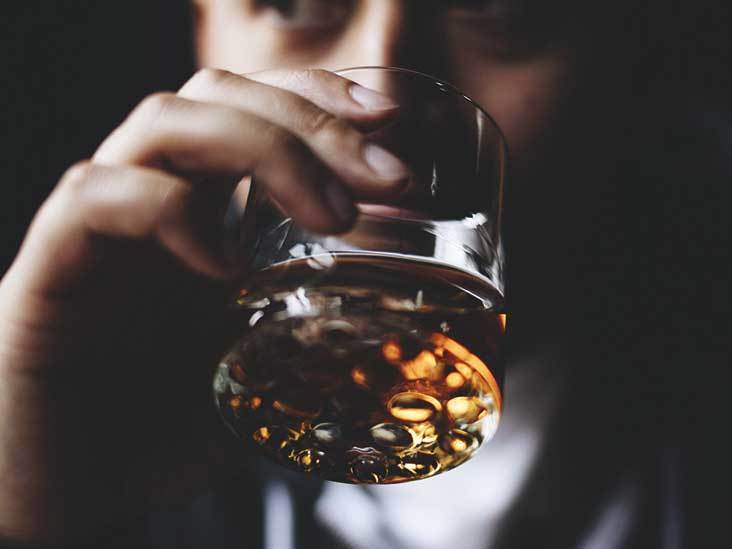Did you know that alcoholism can be caused by genetic factors? Studies show that although there is no one particular gene labeled the “alcohol gene”, there is a certain combination of genes that have been found to have a strong relationship with alcoholism. Studies further indicate that individuals who come from families with a history of alcoholism are more susceptible to the vice. The good news is that although you might be susceptible to drinking, there are ways to curb genetic predisposition and not become a victim of alcoholism.
Before we delve into the methods of preventing alcoholism, let’s put into perspective how alcoholism and genetics are related.
Genetics and alcoholism
From a medical perspective, certain genes have been found to have a strong correlation with alcoholism. They increase the risk of alcohol dependence and the level of consumption. The combination of genes identified to be central to the metabolism of alcohol and a major contributor to the risk of alcohol consumption are dehydrogenase 1B (ADH1B) and aldehyde dehydrogenase 2 (ALDH2); mitochondrial aldehyde dehydrogenase. These two have been highly associated with impacting the risk for alcoholism-related traits.
Other than these genes, there are behavioral genes passed down that can greatly influence alcoholism. Let’s take an example of mental illness or depression. Individuals who come from families with such histories might find themselves dealing with the same issues. Mental illness has been linked to increasing the likelihood of developing alcoholism 20-50%. If you inherit these behavioral genes, it becomes easier to turn to alcoholism as a coping mechanism.
Although this sounds scary, you must understand that just because you are genetically predisposed does not mean you will necessarily abuse alcohol. Certain environmental and social factors contribute to alcoholism. If you are struggling with alcoholism, here are some ways to curb drinking.
Maintain healthy friendships.
Maintaining healthy relationships is one of the greatest ways to stop drinking. When you spend time with people who motivate you to become better, you will maintain a positive attitude in your journey. If you need to avoid your former drinking buddies to become better, then you have to do just that. A smart move is finding new, positive friends who will encourage you in your recovery journey. A good way of finding new friends is in mutual support groups. In such settings, you meet people who are going through the same thing and are working hard to become better.
Manage your stress.
As we mentioned earlier, behavioral and social factors are major contributors to alcoholism. Most people turn to alcohol as a coping mechanism to escape the pressures of life. What we forget is that the “feel good’ effect that comes with drinking does not last forever. After a few hours, you will find yourself dealing with those same issues you were trying to escape. Remember, every time you drink because of stress, you are simply going down the path of addiction. You need to find positive ways of managing stress. Positive ways to handle stress are exercise, meditation, taking a walk, spending time with family or doing something you are passionate about. Concentrating on other things other than alcohol will help reduce consumption.
Seek counseling services.
Depending on the severity of your addiction, it is recommended that you integrate various strategies to aid with recovery which include seeking counseling. There are myriad benefits associated with counseling or therapy. First, you must acknowledge that you will need all kinds of support to help with recovery. A counselor will listen to your issues, uncover the triggers that are causing you to drink, educate you on the techniques that will help with your recovery, and offer you encouragement and motivation. Counseling generally builds self confidence to overcome your addiction.
Sinclair Method Alcohol Treatment
We have talked about alcohol dependence because of a genetic predisposition and we have also mentioned behavioral genes that lead to alcoholism. The good news is that there is a treatment that can erase the habit-forming behaviors and instead cause them to stop.The Sinclair Method Alcohol Treatment is a game-changer for people dealing with alcoholism. However, it only works for those who still have a functioning liver.
How it works
The Naltrexone Sinclair drug works by blocking the endorphins from reaching the brain. If alcohol is stopped from producing a pleasurable effect, it will help the brain lose interest, which means the urge to drink will also dissipate. With Sinclair medication, you don’t abruptly stop drinking. The repeated experiences of drinking without a rewarding feeling takes away the desire to drink. It is recommended that you take the medication an hour before you start drinking. What happens is every time you take it, instead of feeling the ‘buzz’ you feel terrible. The Sinclair treatment is used worldwide and has had tremendous results.
Conclusion:
Dealing with alcoholism is a journey that requires patience. You need to be kind to yourself but also remain disciplined as you go through it. With proper treatment and increasing belief in yourself, you can beat the monster.

Leave a Reply